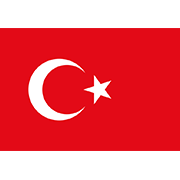Fiscal subject related
In the middle of November 2024, the Turkish government issued Decision Number 9126, amending the Value Added Tax (VAT) rates applicable to various goods and services. This decision is part of ongoing efforts to regulate VAT in accordance with the Value Added Tax Law No. 3065.
The main points of the Decision are as following:
- VAT Rate for Medical Products: The VAT rate for special medical foods that are licensed or approved for import by the Ministry of Health has been set at 10%. This rate also applies to human medicinal products, active ingredients used in these products, and raw materials for producing active ingredients if they are included in a specific government list.
- General VAT Rate Adjustments: The decision specifies that a general VAT rate of 20% will apply to the import and delivery of goods subject to special consumption tax and certain goods classified under position 85.17 of the Turkish Customs Tariff Schedule.
- Amendments to Existing Regulations: The decision modifies the existing list of VAT rates by updating the classification of foods for special medical purposes and human medicinal products. It clarifies that if these items are also listed in another specified category, the lower VAT rate will apply.
- Implementation Date: The amendments will take effect immediately following their publication in the Official Gazette.
- Administrative Oversight: The Minister of Treasury and Finance is tasked with executing the provisions of this decision.
This decision reflects Turkey's ongoing efforts to align its tax policies with public health objectives while ensuring compliance with existing laws governing value-added taxation.
Other news from Turkey
TLv6 Implementation Marks Significant Shift in EU’s Trust List Format
A new EU Trust List format, TLv6, will officially replace TLv5 in May 2025 as part of the updated eIDAS Regulation (EU 2024/1183). It introduces key technical changes like a new URI field, updated signature format, and optional phone number support. Organizations must update their systems to avoid signature validation failures and service disruptions, as TLv5 will no longer be valid once TLv6 take... Read more



Reminder: How to use the fiscal cash register in Turkey—important instructions
 Turkey
Author: Nikola Novković
Turkey
Author: Nikola Novković
In Turkey, fiscal cash registers (NGCR) purchased from authorized dealers must be registered and activated by authorized services, who connect the devices to the Revenue Administration (GIB) system through the Trusted Service Manager (TSM). All retail transactions and external hardware or software must operate exclusively through the NGCR to ensure compliance with legal requirements and automatic transmission of daily closing (Z) reports to the GIB. Read more



Turkey Updated the e-Invoice Package
 Turkey
Author: Ivana Picajkić
Turkey
Author: Ivana Picajkić
The Turkish Revenue Administration (TRA) has updated the e-Invoice Package, introducing new document types, revised technical specifications, and enhanced integration guidelines. These changes, effective from February 17, 2025, aim to improve compliance, streamline tax processes, and promote electronic documentation. Read more



Reminder: Turkey Expanded the List of Goods Subject to the 10% VAT Rate
 Turkey
Author: Ivana Picajkić
Turkey
Author: Ivana Picajkić
As of November 14, 2024, Turkey expanded the list of goods subject to the 10% VAT rate, including foods for special medicinal purposes, active substances in medicinal products, and raw materials for active substance production. This adjustment, implemented under Decision Number 9126, aligns with Turkey's VAT Law No. 3065 and aims to support public health initiatives while refining tax classificati... Read more



E-invoicing in Turkey
 Turkey
Author: Ivana Picajkić
Turkey
Author: Ivana Picajkić
Turkey’s e-Invoicing system, mandated by the Revenue Administration, facilitates digital invoice exchanges for improved efficiency, compliance, and transaction transparency. It encompasses Business-to-Business (B2B), Business-to-Government (B2G), and Business-to-Consumer (B2C) invoicing, with mandatory participation for businesses exceeding turnover thresholds or operating in regulated sectors. Read more



Turkey Implements Increased Tax Penalties Starting January 1, 2025
 Turkey
Author: Ivana Picajkić
Turkey
Author: Ivana Picajkić
Turkey has increased tax penalties starting January 1, 2025, as outlined in General Communiqué No. 577, with rates adjusted to a revaluation rate of 43.93% for the 2024 tax year. Key changes include higher fines for irregularities, escalating penalties for repeated non-compliance with invoice and delivery note requirements, and additional fines for withholding requested information. Read more



Turkey Adjusts Special Consumption Tax Rates on Fuels and Chemicals Effective Immediately
 Turkey
Author: Ivana Picajkić
Turkey
Author: Ivana Picajkić
Turkey has implemented immediate adjustments to Special Consumption Tax (SCT) rates on fuels and chemicals, including natural gas, propane, and aviation fuel, as published in Decision No. 9380 on December 31, 2024. The changes, effective on the day of publication, may increase operational costs for businesses and prices for consumers. Read more


